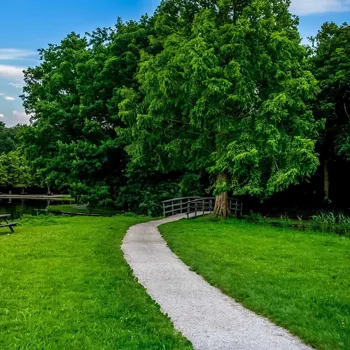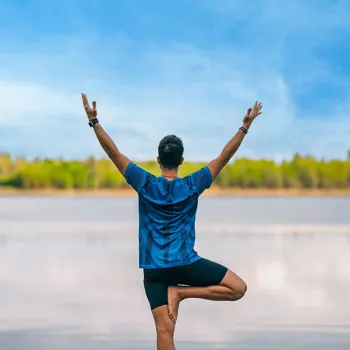Unveiling the Mind-Body Connection in India: How Physical Activity Impacts Mental Health. Dive into this insightful exploration!
In the bustling landscape of modern India, where chai breaks are as common
as traffic jams, the conversation around health often revolves around physical ailments. But, a silent epidemic is brewing, one that affects the mind: mental health.

While awareness is slowly growing, the crucial link between mental and physical well-being remains largely unexplored. Studies are now showing that our physical activities have a big impact on our mental wellness.
Let's take a dive into this connection and how we can leverage it for a healthier, happier India.
Ancient practices meet modern science in mind-body connection
The idea that our minds and bodies are connected is not new. Ancient Indian practices like yoga and meditation have always emphasized this holistic approach. Now, modern science is providing the hard data to support this ancient wisdom.
Regular physical activities, from a brisk morning walk to an energizing session of Zumba, trigger a cascade of positive changes in our brains. These changes can significantly improve our mood and overall mental state.
Exercise boosts mood, reduces stress, improves sleep for mental wellness
When we exercise, our brains release chemicals like endorphins, which have natural mood-boosting and pain-relieving effects. It’s that "runner's high" feeling, but it's not just for runners! Any form of physical activity can trigger this response.
Exercise also helps to reduce levels of stress hormones like cortisol. Chronic stress is a major contributor to mental health issues like anxiety and depression, so managing it is crucial. Beyond the chemical level, physical activities can also improve our sleep patterns.
Good sleep is essential for mental clarity and emotional stability. Lack of sleep can make it hard for us to think clearly and manage our emotions properly.
Small changes yield big mental health benefits. Incorporate movement daily
The good news is you don't need to run a marathon to reap the mental health benefits of physical activity. Small, consistent changes can make a big difference. Start by incorporating more movement into your daily routine.
Take the stairs instead of the lift, walk to the local market instead of driving, or get up and stretch every hour if you have a desk job. Find an activity you enjoy, whether it's dancing, gardening, cycling, or playing a sport.
Regular exercise with social support boosts well-being
The key is to make it something you look forward to, not a chore. Exercising with friends or family can also make it more enjoyable and keep you motivated. Consider joining a local yoga class, a walking group, or even starting a small badminton group in your building.
Social interaction combined with physical activity can have an especially positive impact on mental well-being. Remember, even 30 minutes of moderate-intensity exercise most days of the week can make a significant difference.
Don't be disheartened if you miss a day or two - just get back on track the next day. Consistency is key.
Indians face barriers to physical activity: time, safety, affordability
While the benefits of physical activity are clear, many Indians face barriers to incorporating it into their lives. Lack of time, especially for working professionals and homemakers, is a common challenge.

Safety concerns, particularly for women and children in certain areas, can also deter people from exercising outdoors. Affordability is another factor, as gym memberships and sports equipment can be expensive.
Increase accessibility to physical activities for better health
To overcome these barriers, we need to create more accessible and affordable opportunities for physical activity.
This could include building more parks and recreational spaces, organizing free exercise classes in community centers, and promoting active transportation, such as cycling and walking, through better infrastructure.
Workplaces can also play a role by encouraging employees to take regular breaks for stretching or walking meetings. Schools should prioritize physical education and encourage children to participate in sports and other physical activities.
Promote mental health through physical activity with collective efforts
Promoting the link between mental health and physical activity requires a collective effort from individuals, families, communities, and the government. Public awareness campaigns can help to educate people about the mental health benefits of exercise and encourage them to make it a priority.

Healthcare professionals should also screen patients for physical inactivity and provide counseling on how to incorporate more activity into their lives.
Govt policies can boost physical activity for mental health
Government policies can support these efforts by investing in infrastructure for physical activity, promoting active transportation, and ensuring that schools and workplaces prioritize physical activity.
It's time to shift the focus from just treating mental health issues to preventing them in the first place. Investing in physical activity is an investment in the mental well-being of the nation.
By creating a supportive environment and raising awareness, we can empower individuals to take control of their mental health through physical activity.
Supportive communities enhance physical activity's impact on mental well-being
While individual efforts are crucial, creating supportive communities can amplify the impact of physical activity on mental well-being. Community centers can organize group exercise classes, walking clubs, and sports leagues, providing opportunities for social interaction and physical activity.
Schools can create clubs and sports teams that encourage students to be active.
Workplaces and communities promote physical activity for mental well-being
Workplaces can organize team-building activities that involve physical activity, such as hiking or cycling trips. Neighbors can start informal walking groups or organize community clean-up events that involve physical labor.
These initiatives not only promote physical activity but also foster a sense of belonging and connection, which are essential for mental well-being. Remember, mental health is not just an individual issue, it's a community issue.
Regular physical activity improves mental health holistically
In conclusion, the link between mental health and physical activities is undeniable. By making physical activity a regular part of our lives, we can improve our mood, reduce stress, sleep better, and boost our overall mental well-being.
It's not about becoming an athlete; it's about finding simple, enjoyable ways to move our bodies and connect with our minds. Let us embrace a holistic approach to health, one that recognizes the interconnectedness of mind and body.
A swasth India is not just a physically fit India, but a khush India - a happy, mentally healthy nation. Start small, be consistent, and remember that every step counts.












